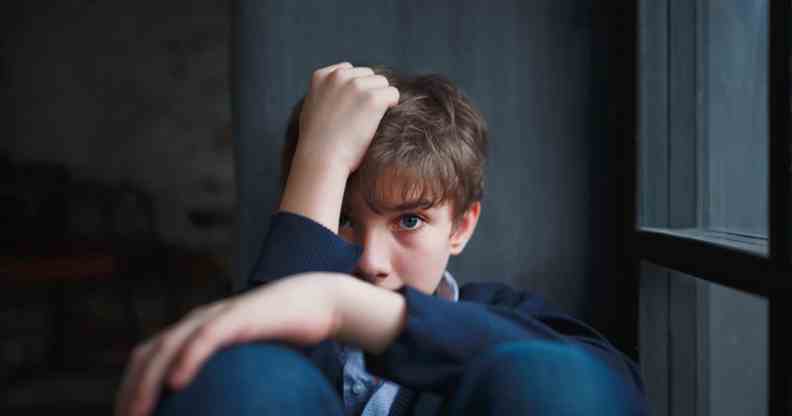Childline sees surge in young people seeking coming out advice, says NSPCC

The NSPCC’s Childline has seen a significant increase in calls about gender and sexuality (Stock photo: Envato Elements)
The NSPCC’s Childline has reported a surge in young people seeking help and advice in coming out over the past year.
The charity has delivered more than 5,000 counselling sessions about gender identity and sexuality since April 2020 – and in 2,638 of them, a young person mentioned coming out as a concern.
It represents a 29 per cent increase from the year before, which Childline believes could be due to the pandemic.
Alex Gray, service head of Childline said: “Many children and young people who have spoken to our trained counsellors have described their time under lockdown as a period of reflection, a chance to take stock of important issues in their lives, both recent and historic.
“Some children with sexuality and gender concerns revealed that lockdown had been particularly hard for them, as they’d been cut off from their usual support networks.
Whereas others told Childline that lockdown had given them the confidence and freedom to come out to their friends and family. However, some worried they may have lost this confidence when returning to school.”
There was a particularly sharp increase in calls during the months of the first lockdown, with the average number of sexuality and gender identity counselling sessions rising by 12 per cent.
One 12-year-old who called the hotline said: “I want to tell somebody that I’m gay but I just can’t find the courage to. I don’t want people to judge me or treat me any differently if they find out. Some people really hate gay people and I’m scared of what will happen if I tell someone.”
Another child said: “I’m feeling confused and worried. I’m just having a lot of gender identity problems going on and I feel like I don’t know who I am.
“Normally I would go and play football or meet with some friends but due to the lockdown I can’t do that anymore. I feel trapped and the lockdown has forced me to focus on my gender identity and I don’t know who I can talk to.”
Over the year as a whole, the charity revealed that 1,467 young people also talked about their mental and emotional health as an additional concern and 1,023 spoke about family relationships.
Other related concerns include school, friendship issues and self-harm.
“No matter what a young person’s experience is with coming out or speaking about their gender identity or sexuality, at Childline we believe every young person has a right to be listened to and to be able to speak about any worries or questions they may have about their gender identity and sexuality without feeling judged,” Gray said.
“If a young person feels unable to speak to a trusted adult in their life then we would encourage them to speak to Childline.”
All children can speak to a trained counsellor over the phone, via email or on a 121 chat on the Childline website.
The NSPCC also has information on its website for parents and carers on how to talk to children about their sexuality and advice on how to help keep them safe.

